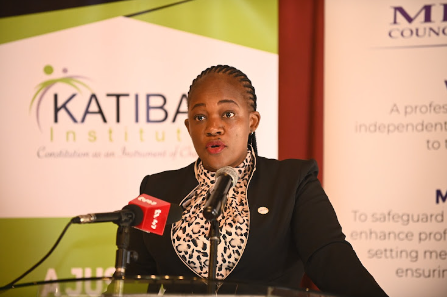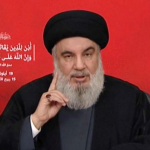The Media Council of Kenya (MCK) and various stakeholders in the communication sector are pushing for increased public access to information as a means to enhance democratic governance in the country. Dinnah Ondari, the MCK’s manager for Press Freedom, Safety, and Advocacy, emphasized the need for individuals to access information freely and safely, whether online or offline. She made these remarks during the International Day for Universal Access to Information event held at the Safari Park Hotel.
“Freedom of expression and public access to information are core components of democratic governance development,” Ondari stated, underlining the event’s theme, “Mainstreaming Access to Information and Participation in the Public Sector.” The gathering included representatives from UNESCO, the Katiba Institute, and the Commission on Administrative Justice (CAJ), who came together to discuss efforts aimed at promoting transparency and media freedom both nationally and globally.
Ondari pointed out that Kenya’s constitutional framework supports these ideals, highlighting Articles 33, 34, and 35, which protect freedom of expression and media freedom, as well as the right to access information. The discussions also focused on the challenges journalists face in the digital realm, with calls for better protections against censorship, surveillance, and harassment.
Kenya Union of Journalists Secretary General Eric Oduor echoed Ondari’s concerns, advocating for public entities to prioritize transparency and ensure timely information dissemination to journalists. He noted that the recent confusion surrounding airport leasing highlighted the problems arising from limited information flow, warning that “information darkness opens the floodgates for rumors, propaganda, and misinformation.”
Oduor further urged a review of the Access to Information Act to ensure it aligns with the current realities in Kenya, particularly in light of technological advancements, including the rise of digital platforms and artificial intelligence.
“While we can’t stop technology, Kenya must move fast in enacting policies to manage these disruptions or risk falling behind,” emphasized the Kenya Editors Guild Chief Executive Officer, Rosalia Omungo. She highlighted the urgent need for media innovation in response to rapid technological advancement, stating, “Journalism remains under threat, and innovation will be key to saving media.” Omungo urged stakeholders to focus on developing new storytelling methods that align with the digital era and underscored the importance of verification in combating misinformation.
“Verification acts as a second layer of defense against incorrect information, especially in the digital age where fake news is rampant,” she noted.
In his remarks, Dennis Omondi, Resident Country Director at the National Democratic Institute, emphasized the critical connection between access to information and effective public participation. “Access to information is crucial for meaningful public participation, which is a fundamental aspect of a working democracy,” he stated. Omondi pointed out that the digital shift has transformed citizen engagement, with smartphones and social media platforms enabling dynamic and responsible participation in governance. He explained that these technologies have democratized public discourse, providing marginalized groups, such as youth and rural communities, with new avenues to influence national policies.
Hugue Ngandeu, Head of Social and Human Programs at UNESCO, reinforced the notion that access to information is a fundamental human right, referencing its basis in international law. “Article 19 of the International Covenant on Civil and Political Rights explicitly acknowledges the right to seek, receive, and impart information,” Ngandeu said.
On the digital front, he pointed out that emerging technologies like AI present both opportunities for widening access to information and new regulatory challenges. He encouraged the media fraternity to engage in the ongoing national AI and emerging technology strategy, emphasizing the importance of their involvement.
The Acting Executive Director of the Katiba Institute, Christine Kuria, addressed the gathering, emphasizing the critical importance of access to information within the framework of Kenya’s constitution. “Access to information is a critical element in realizing the rule of law, democracy, and participation of the people,” Kuria stated. She highlighted that the constitution mandates public entities to ensure proactive disclosure of information to the public, stressing the need for maximum transparency and the duty to provide information routinely in a timely and accessible manner.
Kuria cautioned that neglecting access to information and public participation undermines not only the legality but also the legitimacy of public decision-making. According to her, public participation must be genuine and not merely a formality.
The Director of Corporate Services at the Media Council of Kenya, Hillary Korir, echoed Kuria’s sentiments, stressing the fundamental role of access to information in journalism. “Access to information is the ultimate public good,” Korir said. He linked it directly to the Access to Information Act enacted in 2016, which actualizes Article 35 of the Constitution. Korir noted that this legislation facilitates journalists’ work in research, fact-checking, and verification.
He also highlighted the Media Council’s commitment to advocacy and training, stating that they conduct at least 10 forums annually targeting public officers and journalists. This includes the International Day for Universal Access to Information, aimed at reflecting on achievements and challenges in promoting the right to information. Korir concluded by expressing hope that the forum would lead to actionable ideas that could enhance various roles in advancing the right to information for public interest and national development.
On her part, the Commission Secretary and Chief Executive Officer of the Commission on Administrative Justice, Mercy Wambua, emphasized the significance of access to information as a fundamental right essential for promoting open governance.
“Mainstreaming access to information and participation in the public sector serves as a reminder that the right of access to information is a fundamental right that plays a critical role in creating open, inclusive, and transparent governance systems,” Wambua stated.
During a panel discussion at the event, experts explored the role of technology in advancing access to information and public participation. Dinnah Ondari emphasized the critical role of media in promoting access to information. “There is no journalism without information. This underscores the central role that information plays in the work of the media,” Ondari noted. She highlighted that complaints from journalists regarding the denial of information remain among the top issues filed with the Media Council.
Francis Mureithi, Digital Editor at Radio Africa Group, underscored the risks posed by misinformation in the digital era. “It is crucial to stay vigilant as there’s a significant risk of encountering misinformation and disinformation when relying on technology,” Mureithi warned. He stressed the need for institutions to invest heavily in fact-checking to build trust with digital consumers.
Patriciah Joseph, Programmes Manager at the Katiba Institute, echoed the call for enhanced literacy. “When we talk about access to information, we are referring to both the information itself and the means of enabling that access,” Joseph explained. She emphasized that both government and other institutions must ensure they provide accessible information and the tools necessary for public participation.



